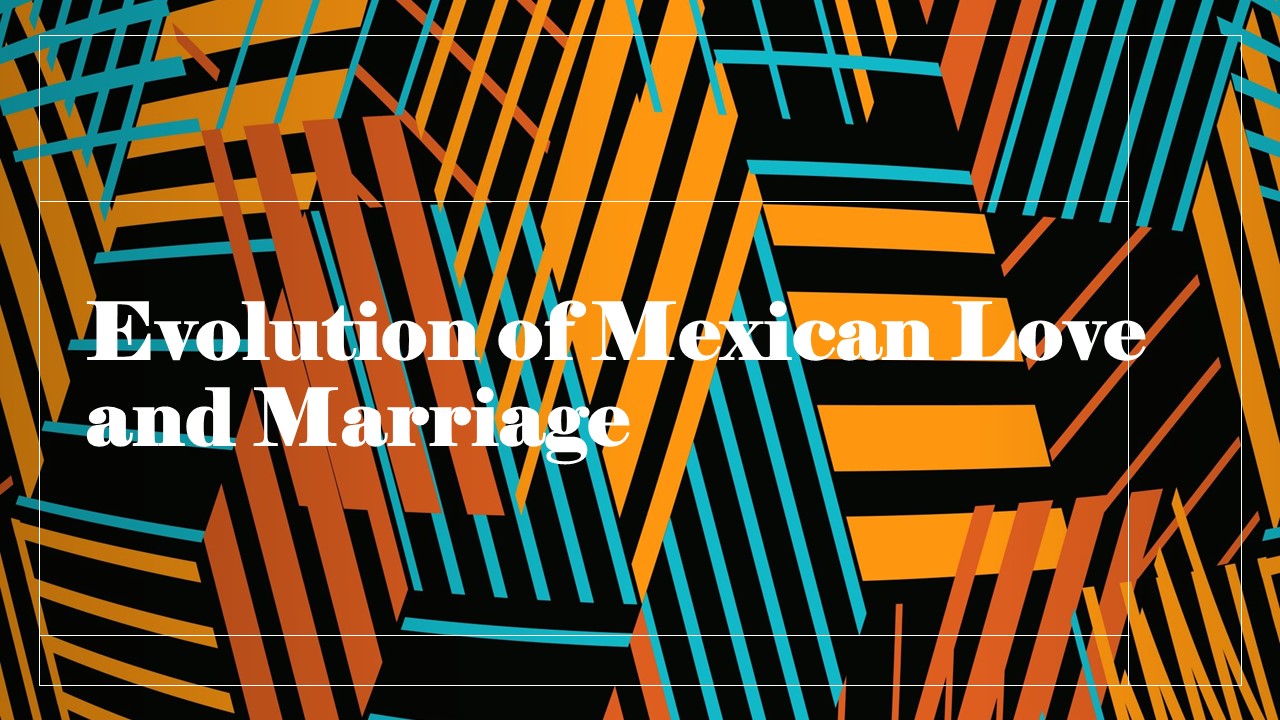Traditional collectivistic societies of the past had greatly interdependent social structures of relationships between people, in which extended families and clans were the major units of society. The strong position of a group was beneficial both for the group and everyone in it. People’s interdependence, as well as the collective family support of each member in those social units, provided numerous advantages for their survival, subsistence, and physical and social security.
On the other hand, this interdependence incurs the obligations of a person to the family. Each had responsibilities for the group’s interests. Therefore, the “self” of each person included the “group”, “family,” and “personal responsibility for the group.” And this part of the “self” in a person’s awareness often precedes their “individual self.”
Mexican Love and Traditional Marriage
Due to this collectivistic psychology of a person’s self, marriages in history have been mostly social and relationship responsibilities of men and women rather than a matter of their individual preferences. Marriages have usually been a system for societal organization, bonds of obligation, and social reproduction in traditional Mexican society.
A family was held together by the ties of responsibilities, respect, mutual obligations, and the fulfillment of gender roles. Love was understood as “practical love” for the common family good. The man was responsible for earning money, while the woman was responsible for cooking, keeping the house clean, washing and ironing clothes, and raising children (Hirsch, 2007). Love was in all these actions of serving and caring for each other and their families..
Marriage was not a matter of romantic love, companionate love, emotional intimacy, or personal fulfillment. “Familism,” as a cultural value, has been the main driving force of Mexican marriage. The notion of love was closely related to familism. Love developed as the result of good living together, not necessarily an ideal to strive for (Hirsch & Wardlow, 2006).
The Half-Century Evolution of Marriage in Mexico
However, over the past 50 years, the society, culture, and everyday life of Mexican people have significantly changed in both urban and rural contexts of Mexico. The cultural transformation of society has also transformed men’s and women’s relationships.
In the period from the 1950s and 1960s up to the early 2000s, Mexican marriages significantly evolved from bonds of obligation to bonds of love. The role of love in premarital and marital relationships has considerably increased.
For example, ethnographic research in a Mexican transnational community conducted in the 1990s and early 2000s revealed a remarkable cultural evolution in Mexican marital values over the last few decades (Hirsch, 2003, 2007). The notions associated with love have gained value for both men and women.
New Ideals of Mexican Love
The ideals of courtship (“noviazgo“) for the new generation of young adults have changed from the emphasis on devotion and respect to a desire to have fun and gain the trust of one’s future partner. The priorities in these ideals have also shifted from the high value of respect (“respeto“) to the high value of intimacy or trust (“confianza“). The values of trust and intimacy in a relationship precede in their priority the traditional cultural concept of honor. Men and women are looking for respectable partners rather than a respectable marriage.
These cultural shifts were especially noticeable in the border areas where transnational Mexican communities live, both in Mexico near the US border and in the Atlanta area of Georgia. Their experience of migration and the influence of North American culture have precipitated the development of love and companionship ideals for marriage (Hirsch, 2007).
However, during the same period of the cultural evolution of Mexican marriage, other relationship tendencies also occurred, and other cultural phenomena played important roles. Due to the influence of modern social media, the role of personal desire and sexuality has heightened. Love and sex are increasingly commodified in public view. Fertility in families declined. (Hirsch & Wardlow, 2006).
In recent decades, Mexican marriage and love have substantially evolved into companionate relationships.
